articles
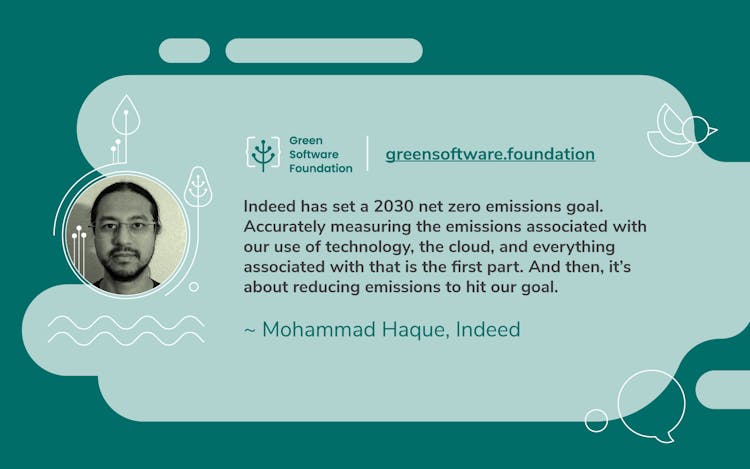
ESG at the Center of Corporate Sustainability - Meet Mohammad Haque of Indeed
Indeed is a global force that has redefined how people find jobs and companies find the talent they need to thrive. Software is at the core of Indeed’s strategy, making it the main focus of corporate sustainability efforts.
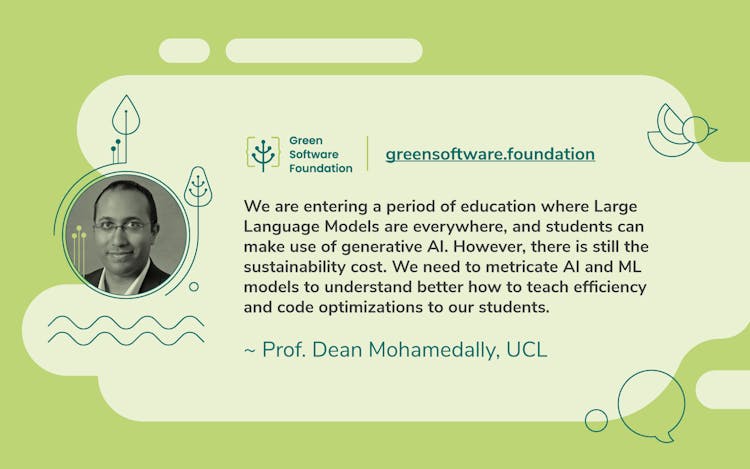
Using Less Hardware and Improving Efficiency – Meet Prof. Dean Mohamedally of UCL
With over 140 lecturers, 100 research staff and 1,300 students, the world-leading Department of Computer Science at UCL is building momentum toward green software

Green Software Advocate Series: An Interview with Pindy Bhullar
Pindy Bhullar is a driving force behind the green software movement. We asked her about her passion for sustainability and the future of green software.

Software Carbon Efficiency Rating - A consumer-friendly rating for software carbon intensity
The GSF Standards Working Group has initiated a project to close the gap of a carbon efficiency rating. The objective is to prove a tool for informing procurement decisions and potentially shaping regulations surrounding software carbon emissions.
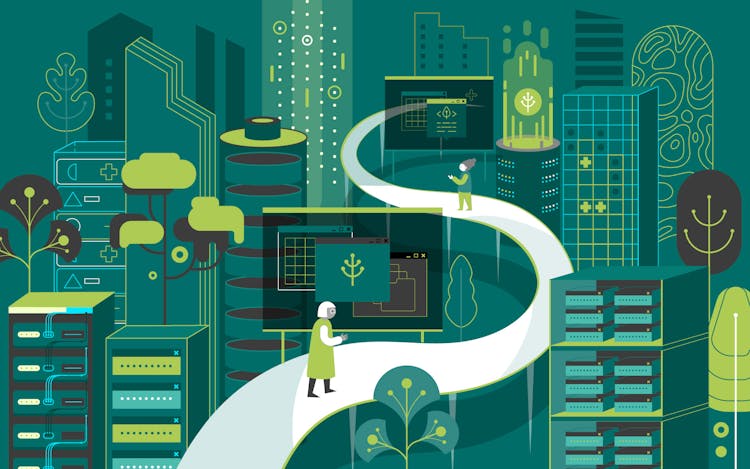
Coding for a Greener Future: Exploring Upcoming Events in Green Software
Find out about exciting events in the green software space. Our article sheds a light on what's in the pipeline, providing you the dates, topics and links.

The Carbon Conundrum and Ethical Quandaries in the Expanding Realm of AI
In this blog, we'll provide a summary of the key messages and concepts shared in Abhishek Gupta’s latest article on The Imperative for Sustainable AI Systems, published on The Gradient.
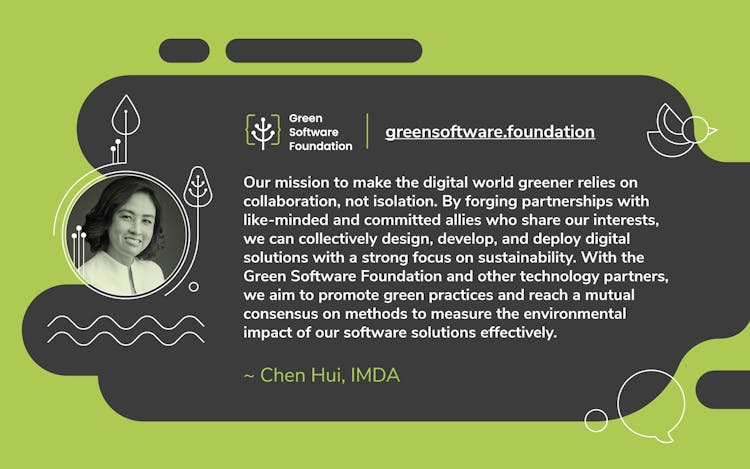
Energizing the ICT Sector - Meet Dr. Ong Chen Hui of Singapore’s IMDA
As a statutory board in the Singapore government, IMDA seeks to deepen regulatory capabilities for a converged ICT sector to safeguard the interests of consumers and foster pro-enterprise regulations.
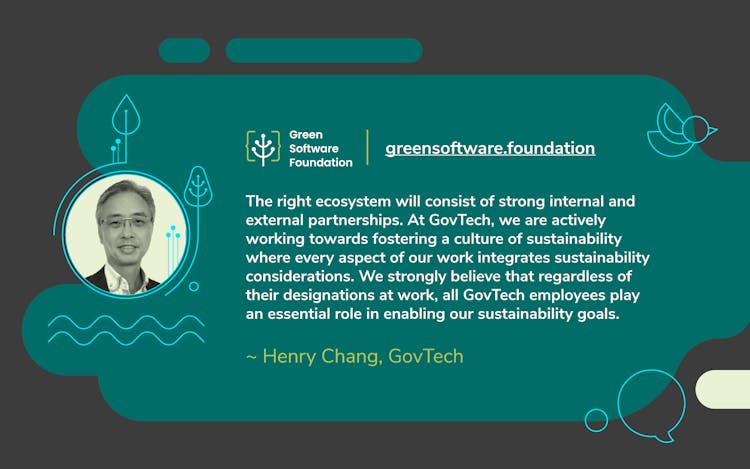
Creating a Digital Sustainability Ecosystem - Meet Henry Chang of GovTech Singapore
GovTech, Singapore’s primary government agency for driving digital transformation across the public sector, plays a pivotal role in ensuring that the move towards a Smart Nation is environmentally sustainable.

Green Software Advocate Series: An Interview with Chris Lloyd-Jones
The new GSF interview series is providing an look inside the minds of some of green software's fiercest advocats. We spoke to Avanade's Chris Lloyd-Jones.

Balancing Power and Responsibility: GSF's AI Environmental Panel Preview
GSF is holding on online event on October 5, where experts will explore how we can make AI greener and carbon-aware.